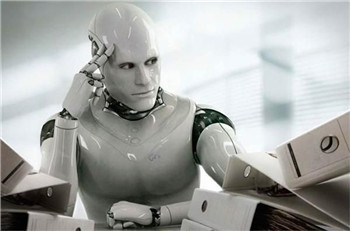
The rapid movement of robots “out of factories to automate all aspects of our lives” has prompted an international group of scientists, engineers and ethicists to set up a body to examine their impact.
在工厂以外正给我们生活各个领域带来自动化的机器人的快速发展,促使一个由科学家、工程师和伦理学家组成的全球团体建立一个机构来考察机器人的影响。
The Foundation for Responsible Robotics, launched in London, will encourage governments and industry to consider the impact of the technology on society, ranging from the potential for mass unemployment to human rights violations. Researchers and policymakers have so far ignored the field, say the founders.
这家机构名为“负责任机器人学基金会”(The Foundation for Responsible Robotics),在伦敦创建,将鼓励政府和行业考虑科技对社会的影响,包括从大规模失业的可能性到违反人权。这些创始人表示,研究人员和政策制定者迄今一直忽视该领域。
“We are rushing headlong into the robotics revolution without consideration for the many unforeseen problems lying around the corner,” said Noel Sharkey, robotics professor at Sheffield University and chairman of the foundation. “It is time now to step back and think hard about the future of the technology before it sneaks up and bites us.”
“我们正草率地进入机器人革命,没有考虑未来很多不可预见的问题,”谢菲尔德大学(Sheffield University)机器人科学教授、该基金会董事长诺埃尔夏基(Noel Sharkey)表示,“现在我们该回过头去,在这种技术走近并影响我们之前认真思考它的未来了。”
Although industrial robots working in factories have historically dominated robotics, the balance is changing fast as service sectors automate. The world already has 12m service robots, compared with 1.5m industrial robots, Prof Sharkey said. The International Federation for Robotics predicts that the number of service robots will rise to 31m by 2018.
尽管在工厂工作的工业机器人一直在机器人领域占据主导地位,但随着服务行业的自动化,这种平衡正迅速发生变化。夏基教授表示,全球已拥有1200万台服务业机器人,而工业机器人为150万台。国际机器人联合会(International Federation for Robotics)预测,到2018年,服务业机器人数量将增至3100万台。
Robots are beginning to entertain and care for children and old people, they are preparing food and cooking in restaurants, cleaning homes, milking cows and killing in armed conflict — defence is the biggest non-industrial user of robots.
机器人正开始为儿童和老人提供娱乐和照管服务,它们还在餐厅准备食品和烹饪、保洁、挤奶以及在武装冲突中杀人,国防领域是非工业行业使用机器人最多的行业。
The nature of the human brain means that we cannot help treating robots as other people — or at least as living animals — to which we quickly grow attached, said Prof Seibt. That “anthropomorphism” makes people protect their favourite robots if they are threatened, even at the expense of other human beings. “Soldiers are prepared to risk their lives to protect a robot,” she said.
丹麦奥胡斯大学(Aarhus University)的教授乔安娜嬠布特(Johanna Seibt)表示,人脑的特点意味着,我们不得不将机器人视为其他人(至少是活着的动物),我们与它们的亲密关系迅速增进。“拟人化”让人们会在机器人受到威胁时保护他们最爱的机器人,甚至不惜牺牲其他人的生命。她表示:“士兵们可能会准备用他们的生命来保护一个机器人。”
There are similar concerns are the impact of robotic companions at the other end of life — how will they affect the ability of young children to interact and make friends with real people?
类似的担忧还有机器人同伴对于生活的影响,它们是否会影响儿童与真人互动和交朋友的能力。












